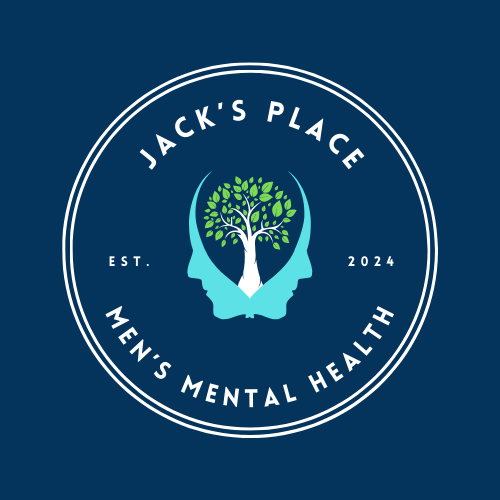Improving Access to Work in Construction: Empowering Inclusivity with Access to Work Funding and the Disability Confident Scheme
The construction industry is thriving, but with the Construction Industry Training Board (CITB) predicting the need for 251,500 additional workers by 2028, there’s a growing need to attract and retain diverse talent. For many disabled workers, barriers to accessibility can make it difficult to thrive in this field. By removing these barriers, the sector can unlock valuable potential and create a workforce fit for the future.
Thankfully, there are resources available to help employers build inclusive workplaces. The Access to Work funding scheme and the Disability Confident programme are two fantastic tools that make it easier to support disabled workers. From funding personalised support to helping employers adopt best practices, these initiatives can help make construction sites more accessible and welcoming to everyone.

It is becoming increasingly noticeable that the CSCS, the leader in skills certification within construction, can inadvertently act as a barrier, preventing individuals from gaining the CSCS card. This, in turn, denies them access to most construction sites.
Many individuals hit these obstacles for various reasons but may not understand why. Those who are neurodivergent—such as individuals with ADHD, Dyslexia, or Autism Spectrum Disorder (ASD)—often face unique challenges when attempting to meet CSCS requirements. These conditions can create barriers to sitting and passing tests, with issues like difficulty staying focused, agitation, or distraction during exams.
Furthermore, the structure and language of the questions often present additional hurdles. They may not be written in a way that resonates with workers who are highly skilled and knowledgeable in their trade but do not have strong academic backgrounds. This mismatch between the test format and the abilities of these workers risks excluding talented individuals from opportunities, not due to a lack of competence but because the system fails to accommodate diverse ways of thinking and learning.
In this blog, we’ll explore how these schemes can help employers create a more inclusive industry – one where everyone can play their part in building the future.
What Is Access to Work Funding?
Access to Work is a government grant designed to support disabled people in overcoming challenges in the workplace. It goes beyond the usual “reasonable adjustments” by funding tailored support, enabling disabled workers to thrive in their roles. This makes it especially valuable in industries like construction, where accessibility needs can be complex and varied.
How It Works
1. Applying
Eligible employees or employers can apply online via the Access to Work programme.
2. Assessment
An assessor will evaluate the needs of the individual and recommend appropriate support.
3. Reimbursement
Employers initially pay for the support and are then reimbursed through the scheme, ensuring no significant financial burden on the business.
What’s Covered?
The support provided is tailored to individual needs and can include:
- Communication Support: For example, British Sign Language (BSL) interpreters or speech-to-text reporters for meetings and day-to-day communication.
- Assistive Technology: Funding for tools like adapted machinery, voice recognition software, or ergonomic equipment.
- Travel Assistance: Covering the cost of taxis or alternative transport for workers unable to use public transport.
- Job Coaches: On-site support for workers with mental health conditions or learning disabilities, helping them navigate tasks and workplace expectations.
What Is the Disability Confident Scheme?
The Disability Confident scheme supports employers in recruiting, retaining, and developing disabled employees. By signing up, companies can demonstrate their commitment to inclusion while accessing practical tools and guidance to create a better workplace for everyone.
The Three Levels
The scheme is designed to grow with you:
1. Disability Confident Committed
Take the first steps towards becoming a more inclusive employer.
2. Disability Confident Employer
Show you’re actively recruiting and retaining disabled workers.
3. Disability Confident Leader
Become a champion for inclusion and set the standard for best practices in your industry.
Signing up signals that you value diversity, making your company more attractive to talented individuals looking for an inclusive workplace.
Why Does This Matter in Construction?
Construction sites come with unique challenges, from uneven terrain to complex equipment. These environments can create barriers for disabled workers, but the right support can make a big difference. By using Access to Work funding and becoming Disability Confident employers can ensure that everyone has the tools and opportunities to succeed.
Benefits for Employers
– Attracting Talent: Accessible workplaces open the door to a wider talent pool.
– Retaining Expertise: Providing support to employees who develop disabilities ensures continuity and reduces turnover.
– Boosting Reputation: Inclusive practices highlight your company as a forward-thinking, supportive employer.
Real-World Examples
– Providing assistive tools like adapted machinery or noise-cancelling headsets.
– Offering reliable transport solutions for workers to reach remote sites.
– Training managers on disability awareness and fostering an inclusive culture on-site.
Let’s Build an Inclusive Future
The construction industry is all about building – whether it’s homes, infrastructure, or opportunities. By embracing tools like Access to Work funding and the Disability Confident scheme, employers can break down barriers and create a sector where everyone has the chance to thrive.
Inclusive workplaces aren’t just good for business – they’re essential for a thriving, sustainable industry. With the right support in place, we can create a construction workforce that’s diverse, adaptable, and ready to meet the challenges of tomorrow.
Want to know more?
Visit https://www.gov.uk/access-to-work to explore how these programmes can help your business and take the first step towards a more inclusive construction site today.
The information provided in this blog is for general informational purposes only and does not constitute professional advice. While every effort has been made to ensure the accuracy of the content, I make no guarantees regarding its completeness, reliability, or suitability for your specific circumstances. Readers are encouraged to seek professional advice before acting on any information shared here. I disclaim all liability for any outcomes resulting from reliance on the information presented in this blog.
